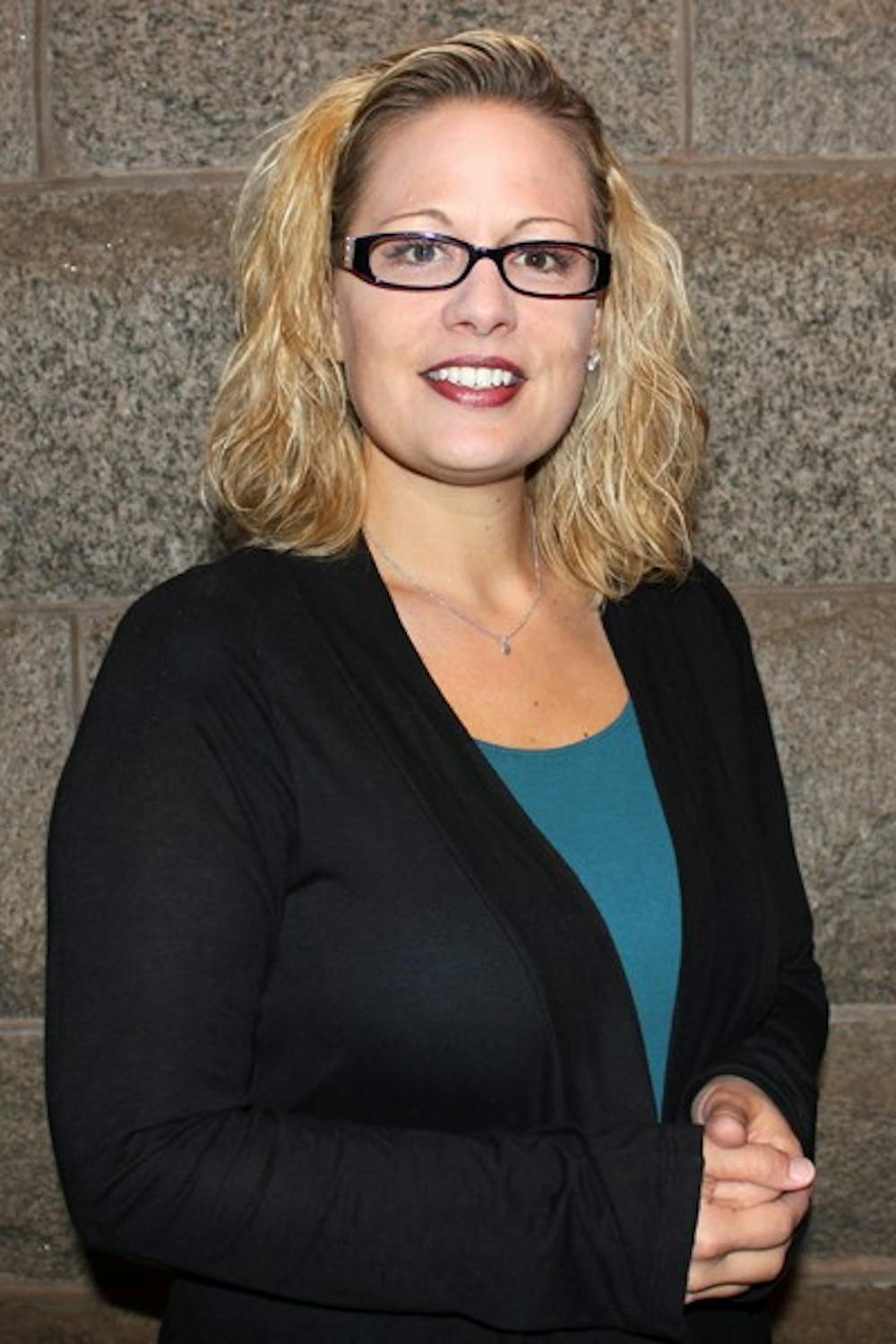Sen. Kyrsten Sinema, D-Phoenix, vacated her seat in the state legislature on Tuesday to run in Arizona’s newly formed 9th Congressional District.
Sinema may be competing against several other Democrats for her Party’s nomination, including State Sen. David Schapira, D-Tempe, and Arizona Democratic Chair Andrei Cherney.
The Arizona Independent Redistricting Commission created the new district last year to account for increases in Arizona’s population. The map is awaiting approval by the U.S. Justice Department, but the proposed 9th district includes Tempe, Ahwatukee, West Mesa and parts of Phoenix.
Republican U.S. Rep. Ben Quayle currently resides in the 9th District but may decide to run in the 6th, where the majority of his constituents are located, against fellow freshman lawmaker Rep. David Schweikert. Quayle has not yet announced an official decision.
Arizona’s primary will take place Aug. 28, with the general election scheduled for Nov. 6.
Sinema made the announcement of her candidacy in a campaign video posted to her website where she said those in Washington do not understand what constituents need.
“They don’t get that people are hurting,” Sinema said. “Jobs are scarce, people are losing their homes and they worry they’re next. I get it.”
Sinema told The State Press that she has been an advocate for middle-class families, small businesses and students during her time at the Senate.
“I am running because we can’t wait while Washington gets worse,” Sinema said.
If elected, Sinema would become the first openly bisexual member of Congress. In Arizona, she has been a key figure against same-sex marriage bans.
“I believe that as Americans, we share many of the same values,” Sinema said. “We may articulate them differently, but by finding respect for one another we can find solutions together.”
Two days after formally announcing her bid for Congress, Sinema received the Phoenix Law Enforcement Association’s endorsement.
Levi Bolton, PLEA spokesperson, said PLEA endorsed Sinema because of her demonstrated commitment to the community and law enforcement.
“As a state legislator, Kyrsten did more than just give lip service in support of law enforcement and police officers,” Bolton said. “She stood by those words and voted on numerous occasions to support us.”
In response to PLEA’s endorsement of her candidacy, Sinema said she appreciates the service and sacrifice of the law enforcement community.
“I’ve always felt it was vital that I be there for them,” Sinema said. “I am deeply honored that they are now returning that support by backing my effort to represent them in Congress.”
During her time as a senator, Sinema passed seven bills along bipartisan lines. Of the seven bills she was able to pass, several of them focused on the needs of military families.
Senate Bill 1224, for example, absolves spouses and dependent minors of being disqualified from unemployment benefits when they change locations with an Armed Services member under orders. The measure passed in January 2011 as an amendment to Senate Bill 1373, which deals with military affairs and funds.
Political science and criminal justice sophomore Brendan Porter said he thinks it’s extremely important for Sinema to focus on education as well.
“The conversation in America is fixed on jobs and economic growth,” Porter said. “I want to hear what she is going to do to both make higher education more affordable and prepare students K-12 to receive a college education.”
He said the price of higher education limits opportunities for those who cannot afford it.
“Millions of Americans can’t access high paying jobs because the cost of higher education in America is skyrocketing,” Porter said.
Sinema sponsored House Bill 2410, one of several bills dealing with higher education, which grants in-state tuition to honorably discharged veterans without requiring them to wait for one year’s residence in Arizona. The bill was passed in January 2011.
Sinema is currently pursuing her doctorate in Justice and Social Inquiry at ASU’s School of Social Transformation.
Sinema plans to continue her studies and graduate in May 2012.
Prior to pursuing her doctorate, Sinema received her law degree and master’s degree in social work from ASU. She is currently an adjunct professor in ASU’s School of Social Work and in the Justice and Social Inquiry program.
Reach the reporter aklee8@asu.edu





